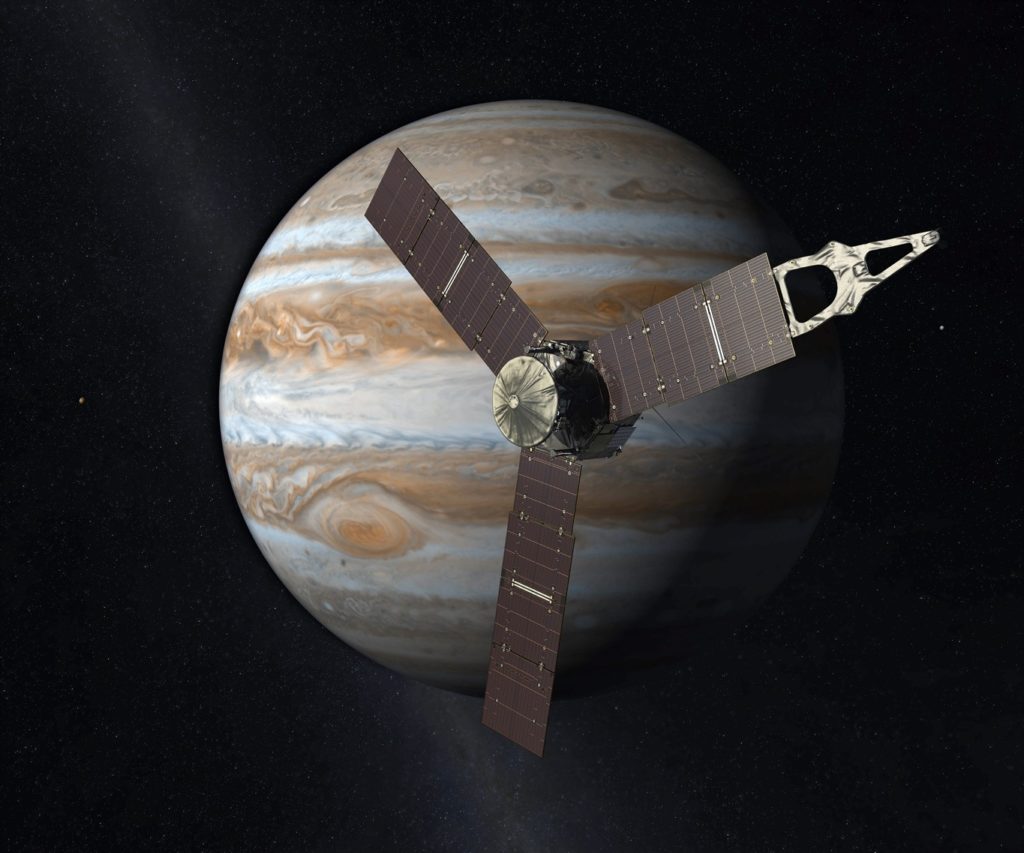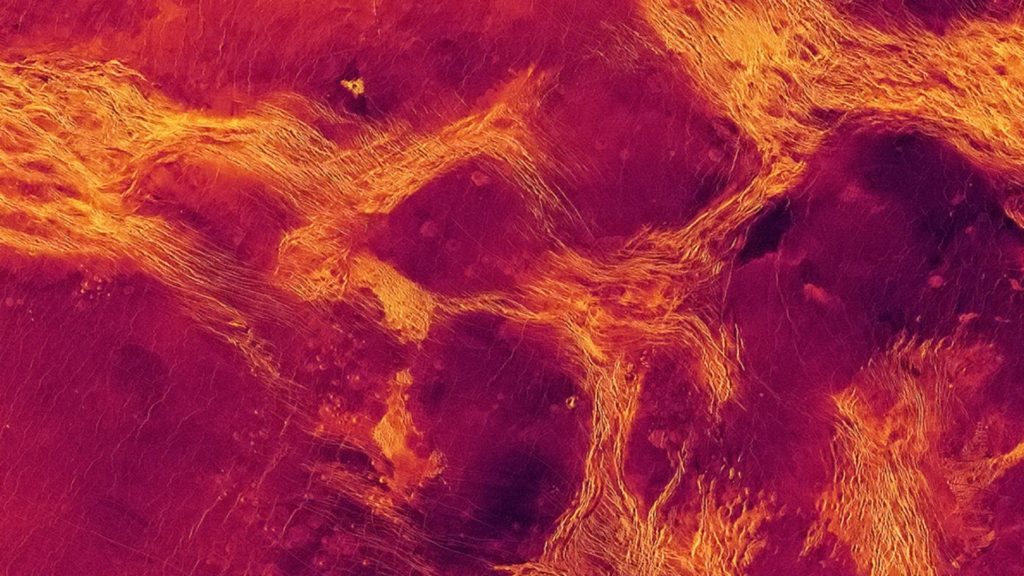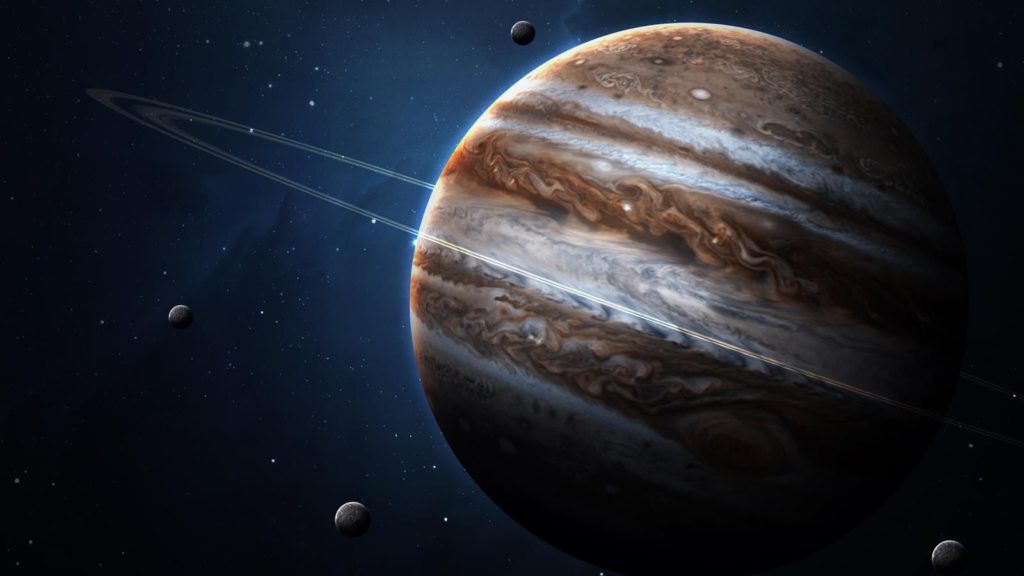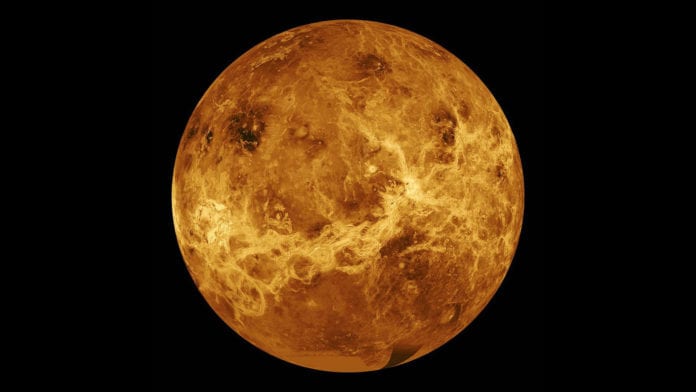A brand new study has shattered all hopes on the possibility of life in the clouds of Venus. The findings based on data from several Venus probes claim that there is absolutely no chance of anything living in the acidic clouds of Venus. The amount of water in the atmosphere of Venus is so low that even the drought-tolerant microbes of Earth wouldn’t be able to survive there.
The research team looked at the most dry-tolerant and also the most acid-tolerant microbes to ever exist on Earth – and came to the conclusion that none of them would stand a chance on Venus. There just isn’t enough water vapour in the burning clouds (thick sulphuric acid clouds) of the planet to support life as we know it. All living organisms including microorganisms consist primarily of water and without enough hydration, they can’t proliferate.

The extensive study verified measurements from probes that flew through the atmosphere of Venus and gathered numerous data about pressure, temperature, and humidity observed on the planet. Taking the help of these values, the scientists calculated the so-called water activity in the clouds’ droplets, a measure similar to humidity.
It measured the water vapour pressure inside the individual molecules in the clouds, which is one of the limiting factors for the existence of any kind of life on Earth. Generally, pure liquid water would have a water activity of 1, and perfect dryness would score 0 on the scale. After the examination of Venus’s clouds, they found a water activity of less than 0.004 because of the presence of acidic compounds.

“When we looked at the effective concentration of water molecules in those clouds, we found that it was a hundred times too low for even the most resilient Earth organisms to survive. It’s almost at the bottom of the scale and an unbridgeable distance from what life requires to be active,” said John Hallsworth, lead author of the paper and a microbiologist at Queen’s University in Belfast, in Northern Ireland, U.K. Hallsworth further explained that the procedure used to calculate the water activity for life in the clouds of Venus may also help determine the habitability of other exoplanets.
No chances for life in the clouds of Venus!
The clouds of Venus, which are mostly made of sulphuric acid, have far less water and far more acid than even the most extreme life forms on Earth need for survival. This is according to a new analysis of the habitability of the planet’s atmosphere. This finding puts a damper on recent signs of potential life there.

The new study for searching life in the clouds of Venus seems to abolish the hope stirred by the surprise announcement last September when potential molecules created by living organisms were discovered in the fiery planet’s atmosphere. It indicated that there might be a possibility of life.
The Venus research team led by Jane Greaves at Cardiff University in the UK, to look for life in the clouds of Venus discovered phosphine, a compound made of atoms of phosphorus and hydrogen that on Earth can be associated with living organisms. They believed that phosphines might be produced by microorganisms residing in the venous clouds.
It gave the impression that strange, minute organisms could give rise to life in the clouds of Venus. However, spacecraft observations reveal that the water level is more than 100 times too low to support Earth-like life. While the latest findings veto any chance of finding life in the clouds of Venus, the study identifies another planet – Jupiter – with enough water in the clouds and the appropriate atmospheric temperatures needed to support life.
The researchers looked at data from other planets and found that the clouds of Jupiter do dispense sufficient water activity theoretically required to support life. The results of the study dedicated to finding life in the clouds of Venus are described in a paper published in the journal Nature Astronomy.

“Jupiter looks much more optimistic. There is at least a layer in the clouds of Jupiter where the water requirements are met. It doesn’t mean that there is life, it just means that with respect to water, it would be OK.” said NASA astrobiologist Chris McKay, a co-author on the research paper.
“I’m not suggesting there’s life on Jupiter and I’m not even suggesting life could be there because it would need the nutrients to be there and we can’t be sure of that. But still, it’s a profound and exciting finding and totally unexpected.” Hallsworth said to reporters.
According to both Hallsworth and McKay, further detailed studies and completely new measurements will be needed to confirm whether microbial life might exist deep in the clouds of Jupiter.
Further reading:


